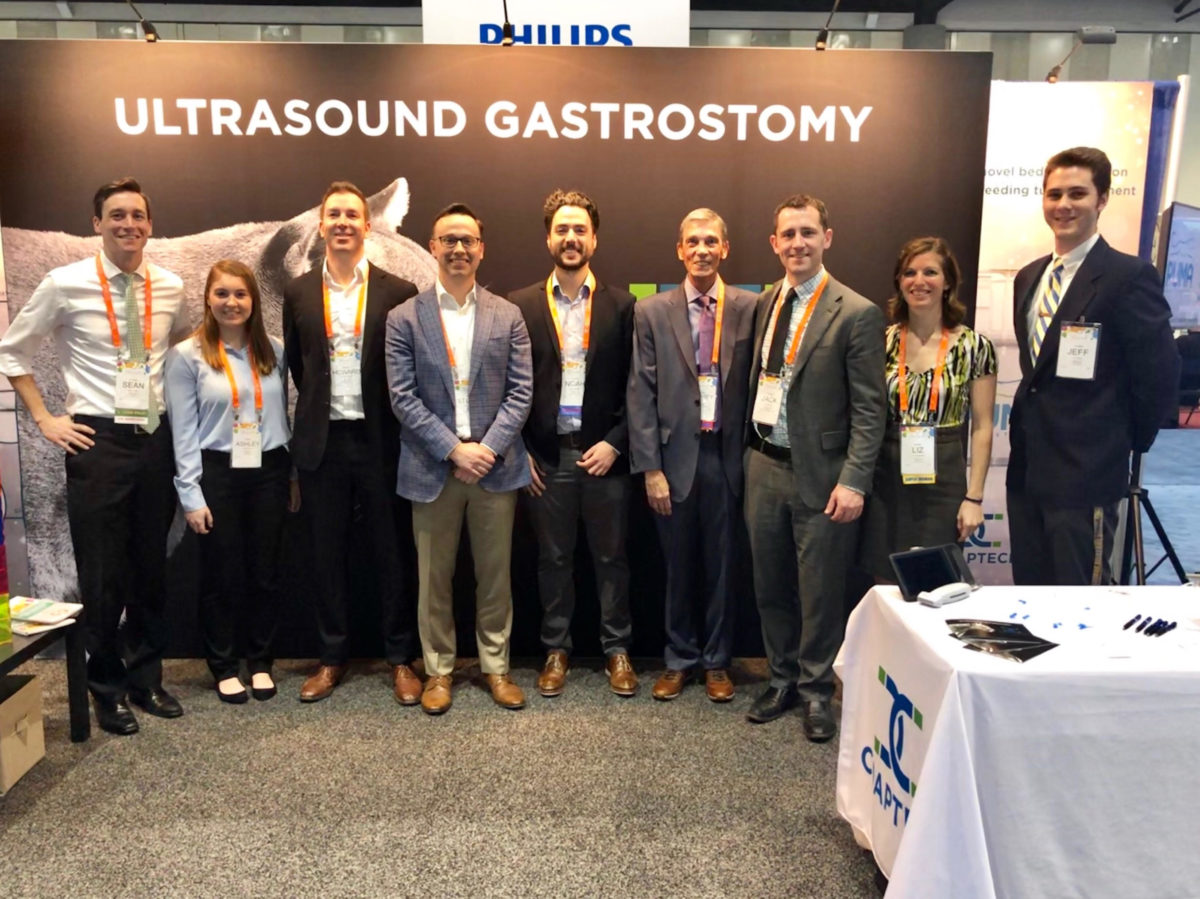Baltimore-based medical device startup CoapTech reached a key milestone in April: It can now market its product that allows the placement of a feeding tube without the need for an operating room.
The company, which was founded out of the University of Maryland, Baltimore, received clearance from the U.S. Food and Drug Administration. The approval it received, called 510(k), demonstrates that devices are safe and effective. When startups are working through clinical trials and preparing regulatory submissions, it’s FDA clearance they’re ultimately seeking.
The company was born as Dr. Steven Tropello, an emergency medical physician at the University of Maryland School of Medicine who is a cofounder of the company along with CEO Howard Carolan as well as its chief medical officer, saw patients who cannot eat or swallow waiting for days for a specialist or operating room to free up so they could have a “G-tube” placed. The process also often requires special imaging.
Tropello invented a system that allows ultrasound to be used for procedures in hollow organs of the body. The product that received FDA clearance, called PUMA-G, is designed specifically for feeding tubes and is the first application of the technology to receive approval.
With the device, the feeding tube procedure can be completed by a clinician at the bedside, rather than requiring a surgical setting.
“Ultrasound can really be used anywhere,” Tropello said.
The device also works with any type of ultrasound probe, and any type of feeding tube, according to the cofounders: “We’ve developed an entirely unique, cost-saving and safety-improving method for placing a feeding tube,” Carolan said.

The cofounders said FDA clearance a big step for the company to move from a research and development phase into commercialization. Carolan said the company will have a targeted rollout working with specific clinicians this year.
“The priority for the year is to do good clinical work with these part sites we’ve engaged with,” he said. “We have the team in place now to support those sites as they begin using it on their patient population.”
As CoapTech has grown, the cofounders have made considerable use of the resources available in Baltimore and Maryland. Along with working through the university and UM Ventures, one of the investors in the company’s initial seed round, it’s also teamed with Harbor Designs and Manufacturing in Pigtown and Randallstown-based Root3 Labs as it developed a prototype.
The company previously raised $2.35 million in funding. Investment has come locally, including from TEDCO and members of Baltimore Angels and Dingman Angels. Carolan also said the state’s biotech tax credit has been a “fantastic incentive” for the company.
In this research and development phase, the company has worked out of Spark Baltimore, as well as at Sinai Hospital. Recently, it moved to LaunchPort at City Garage in Port Covington, which offers manufacturing resources as well as colocation space. It’s a space we’ve seen companies move as they reach a new phase.
“It’s a pretty fantastic event for Coaptech to get a 510(K) clearance as quickly as they’ve been able to,” said Phil Robilotto, the director of UM Ventures, Baltimore. “It speaks to the quality of the team and technology, and we’re really happy for the company.”
The cofounders see more applications for the technology, so it could be just the first clearance they receive.







